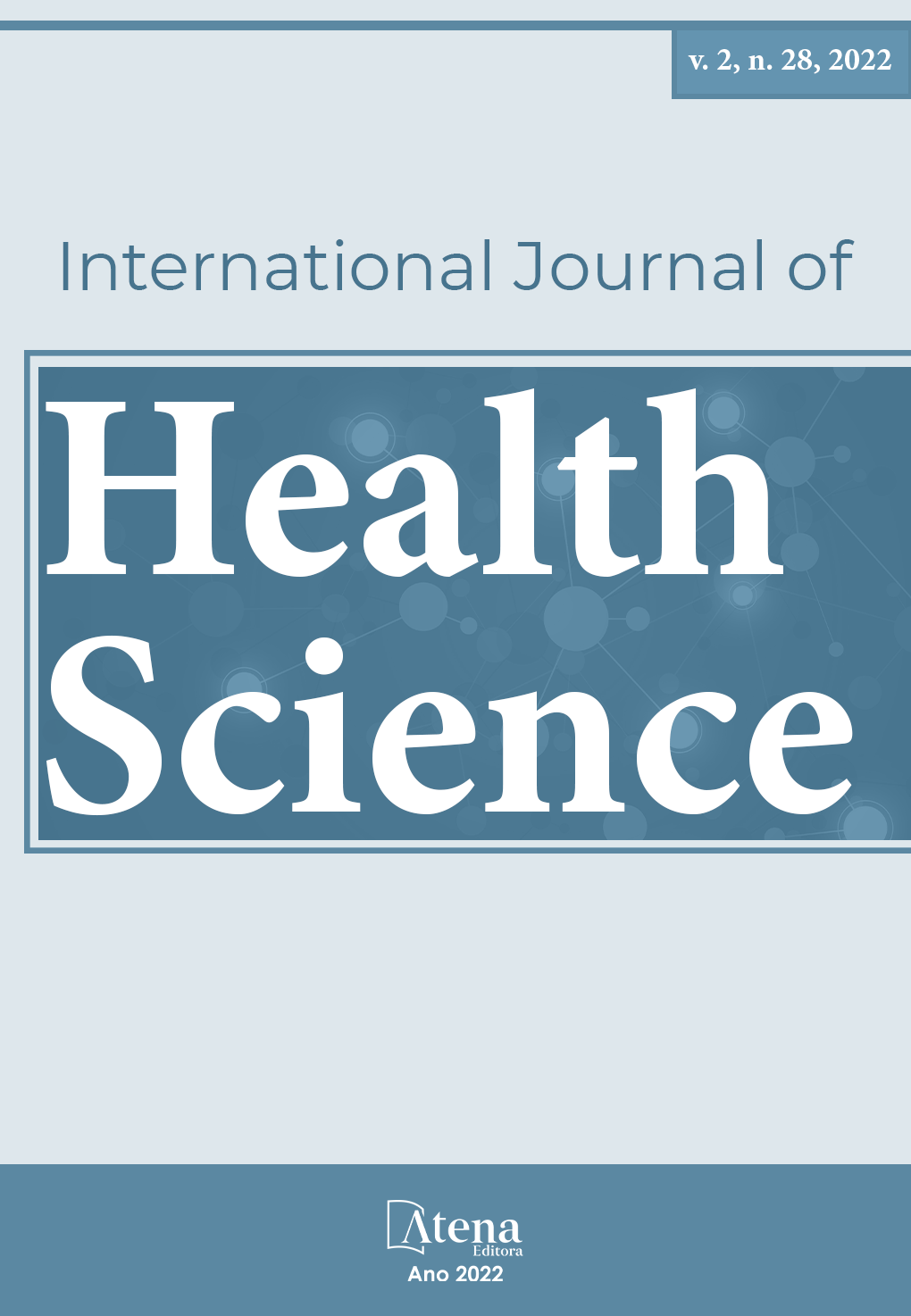
GOODPASTURE SYNDROME: A BIBLIOGRAPHIC REVIEW OF CLINICAL-THERAPEUTIC ASPECTS
INTRODUCTION: Goodpasture syndrome (GS) is a severe inflammatory process caused by the development of specific autoantibodies against type IV collagen of the glomerular basement membrane. Lung injury is characterized by hemorrhagic pneumonitis and, in the glomeruli, diffuse endo and extracapillary proliferative injury is observed. Mortality, therefore, approaches 30% of cases, with pulmonary hemorrhage being the main cause – although glomerulonephritis can rapidly progress to chronic renal failure (NUNES et al, 2003). As it is a syndrome relatively little described in the scientific literature and with a very serious prognosis in morbidity and mortality, the current study aims to review clinical and therapeutic aspects of the disease published in recent years METHODOLOGY: This article is a bibliographic review with a descriptive character, whose collection of scientific articles was carried out in the SCIELO, Google Scholar, PubMed and LILACS system. After selection, an analysis of the clinical-therapeutic aspects of the syndrome was constructed. RESULTS: For a clinical diagnosis, the presence of renal and pulmonary manifestations must be identified. The renal picture is manifested with hematuria (stigma of the syndrome), subnephrotic proteinuria (< 3.5g in 24h), oliguria, generalized edema (anasarca) and arterial hypertension. In the complementary exams for glomerulonephritis, it is possible to detect in the urine sediment exam: casts due to erythrocyte dysmorphism (indicating glomerular lesion), pyuria and leukocyte casts. Patients with a suggestive clinical picture must be referred for renal biopsy. For the pulmonary condition, imaging tests can be performed. In very rare cases, lung biopsy will be indicated. Bronchoscopy can be useful to document diffuse alveolar hemorrhage and to rule out an infection, but it is not an initial test. Treatment is performed from daily plasmapheresis or every other day until inactivation of anti-GBM in serum, corticosteroids and the immunosuppressant. CONCLUSIONS: In recent years, studies on GS are still incipient. For the most part, a series of punctual old case reports predominate in the scientific literature. In this sense, considering that it is a syndrome of poor prognosis, it is essential that new research be developed in order to deepen the pathophysiological aspects that interfere in the clinical manifestations and in the best therapy for the disease.
GOODPASTURE SYNDROME: A BIBLIOGRAPHIC REVIEW OF CLINICAL-THERAPEUTIC ASPECTS
-
DOI: 10.22533/at.ed.1592282207068
-
Palavras-chave: Goodpasture Syndrome. Anti-GBM glomerulonephritis. Diagnosis. Treatment.
-
Keywords: Goodpasture Syndrome. Anti-GBM glomerulonephritis. Diagnosis. Treatment.
-
Abstract:
INTRODUCTION: Goodpasture syndrome (GS) is a severe inflammatory process caused by the development of specific autoantibodies against type IV collagen of the glomerular basement membrane. Lung injury is characterized by hemorrhagic pneumonitis and, in the glomeruli, diffuse endo and extracapillary proliferative injury is observed. Mortality, therefore, approaches 30% of cases, with pulmonary hemorrhage being the main cause – although glomerulonephritis can rapidly progress to chronic renal failure (NUNES et al, 2003). As it is a syndrome relatively little described in the scientific literature and with a very serious prognosis in morbidity and mortality, the current study aims to review clinical and therapeutic aspects of the disease published in recent years METHODOLOGY: This article is a bibliographic review with a descriptive character, whose collection of scientific articles was carried out in the SCIELO, Google Scholar, PubMed and LILACS system. After selection, an analysis of the clinical-therapeutic aspects of the syndrome was constructed. RESULTS: For a clinical diagnosis, the presence of renal and pulmonary manifestations must be identified. The renal picture is manifested with hematuria (stigma of the syndrome), subnephrotic proteinuria (< 3.5g in 24h), oliguria, generalized edema (anasarca) and arterial hypertension. In the complementary exams for glomerulonephritis, it is possible to detect in the urine sediment exam: casts due to erythrocyte dysmorphism (indicating glomerular lesion), pyuria and leukocyte casts. Patients with a suggestive clinical picture must be referred for renal biopsy. For the pulmonary condition, imaging tests can be performed. In very rare cases, lung biopsy will be indicated. Bronchoscopy can be useful to document diffuse alveolar hemorrhage and to rule out an infection, but it is not an initial test. Treatment is performed from daily plasmapheresis or every other day until inactivation of anti-GBM in serum, corticosteroids and the immunosuppressant. CONCLUSIONS: In recent years, studies on GS are still incipient. For the most part, a series of punctual old case reports predominate in the scientific literature. In this sense, considering that it is a syndrome of poor prognosis, it is essential that new research be developed in order to deepen the pathophysiological aspects that interfere in the clinical manifestations and in the best therapy for the disease.
-
Número de páginas: 8
- Ana Augusta Teles da Paixão
- Déborah Esteves Carvalho
- George Lucas Santos Pereira
- Vitória Palazoni Viegas Mendonça
- Lays Rejanne Santos de Menezes
- Maria Eduarda Tavares Brito
- Isadora Valentina dos Santos Cunha
- Geovana Lorena Andrade dos Santos
- Fernanda Beatriz Santos Silveira
- Anelise Marques Feitosa de Souza
- Mariana Flor Rocha Mendonça Melo
- Caroline Nascimento Menezes


